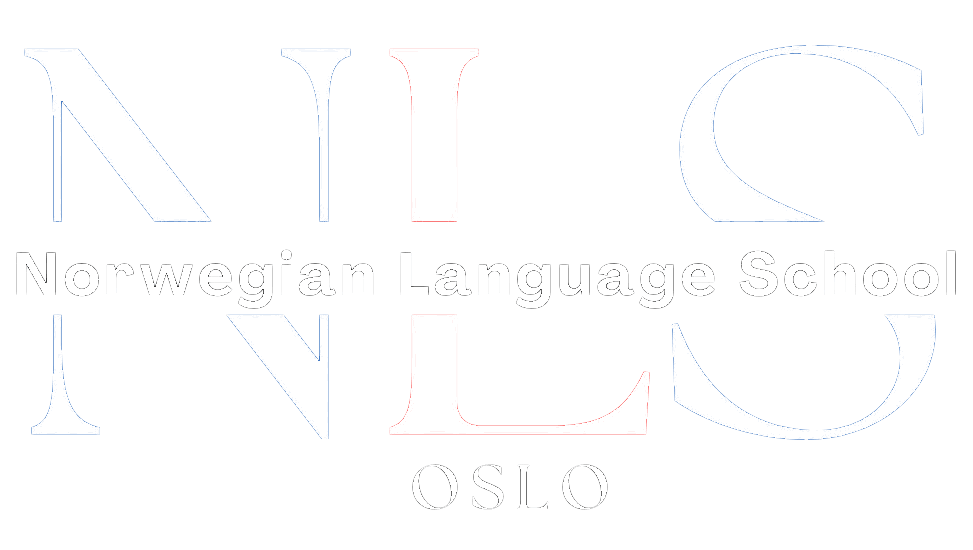
Exploring Gods from Norse Mythology Essentials
Enter the enchanting realm of Norse mythology, where gods from the ancient pantheon reign supreme. From tales of valor and epic battles to cunning tricksters and mystical powers, Norse mythology offers a captivating glimpse into a world steeped in legends and mythology. But have you ever wondered which gods are the most essential in this rich tapestry? Let’s embark on a journey to uncover the key deities that shape the Norse pantheon and their enduring significance.
Table of Contents
ToggleKey Takeaways:
- Discover the essential gods of Norse mythology
- Uncover the roles and powers of Odin, Thor, Loki, and Freyja
- Explore the influence of Norse mythology in literature and popular culture
- Learn about the rich tapestry of stories that make up the Norse pantheon
- Reflect on the enduring legacy of these gods in contemporary society
Odin, the Allfather and Ruler of Asgard
Odin, the wise and mighty Allfather, holds a prominent position in Norse mythology as the ruler of Asgard, the celestial realm of the gods. Known as the supreme deity, Odin presides over not only Asgard but also the nine realms that make up the Norse cosmology.
Often depicted as a wise and bearded figure, Odin is associated with wisdom, knowledge, and magic. He is renowned for his insatiable thirst for knowledge, which led him to sacrifice one of his own eyes in exchange for a sip from the Well of Wisdom. This act granted him unparalleled wisdom and the ability to foretell the future.
As the ruler of Asgard, Odin is responsible for maintaining order and safeguarding the balance between the gods and the otherworldly forces that threaten their realm. He is often depicted as a formidable warrior, wielding his enchanted spear, Gungnir, which never misses its mark.
However, Odin’s power extends beyond the realm of Asgard. He is also the master of Valhalla, the great hall where fallen warriors are taken after death. Odin personally selects the bravest of warriors to join him in Valhalla, preparing for Ragnarok, the apocalyptic battle that will decide the fate of the gods and the world.
Odin’s influence over Norse mythology and the realms cannot be overstated. He is central to many tales and adventures, playing a crucial role in shaping the destiny of the gods and mortals alike. His complexities, wisdom, and power make him one of the most revered and iconic figures in Norse mythology.
Thor, the God of Thunder and Protector of Mankind
Among the mighty Norse gods, Thor stands tall as the embodiment of thunder and strength. Known for his iconic hammer, Mjölnir, Thor wields the power of lightning, defending both gods and humans from the forces of chaos.
As the son of Odin, the Allfather of the gods, Thor holds a significant place in the Norse pantheon. His role as the god of thunder is not only figurative but also literal, as he commands the storms with his mighty swings of Mjölnir.
Thor’s adventures are as legendary as the storms he controls. From battling mighty giants to embarking on perilous quests to retrieve stolen treasures, Thor’s feats fill the pages of Norse mythology. He is a revered warrior and protector, always ready to defend his fellow gods and humanity against any threat.
Notable encounters in Thor’s mythological journey include his fierce battles with the fearsome Jörmungandr, the monstrous serpent, and his ongoing rivalry with Loki, the mischievous trickster god.
“With strength in my hand and lightning in my heart, I shall protect Asgard and all realms against the forces of chaos and darkness.”
– Thor
Thor’s significance goes beyond his status as a god. In many ways, he represents the core virtues highly valued by the Norse people – bravery, loyalty, and protection. His thunderous presence embodies the power that humans aspire to possess and draws admiration and reverence from all who hear his name.
In today’s popular culture, Thor continues to capture the imagination of millions. Whether through comic books, movies, or other forms of media, his character has evolved and become a modern-day icon, captivating audiences worldwide.
As we explore the rich tapestry of Norse mythology, delving into the depths of the gods and their realms, we cannot overlook the indomitable presence of Thor. His thunderous might and unwavering dedication to the protection of gods and humans alike make him an unforgettable figure in the pantheon of Norse deities.
Loki, the Trickster God and Shapeshifter
In Norse mythology, Loki is a captivating figure known for his mischievous nature and ability to change his form at will. As one of the most complex characters in the Norse pantheon, Loki’s actions often serve as catalysts for major events and conflicts among the gods.
Loki possesses an unparalleled cunning and intelligence, which he employs to play pranks, deceive others, and challenge the established order. His quick wit and cleverness make him an unpredictable and fascinating character who is both loved and feared.
Loki’s relationship with other gods is filled with contradictions. While truly a member of the Norse pantheon, he does not come from the same lineage as the other gods. Instead, he is an outsider, adopted as a blood brother to Odin, the chief of the gods. The dichotomy of his origins and his adopted role creates tension and ambiguity in his interactions with other deities.
This norse pantheon deity’s escapades often lead to dire consequences, as his pranks and mischief frequently result in chaos and turmoil. His infamous involvement in the death of Baldr, the beloved god of light, is one such event that sets into motion a chain of events that ultimately leads to the destruction of the gods during Ragnarök, the Norse apocalypse.
Despite his troublesome nature, Loki’s presence in Norse mythology serves a vital purpose. He challenges the status quo and exposes the flaws and weaknesses within the divine realm. His disruptions are important in shaping the narratives and myths of the Norse gods, adding depth and complexity to their stories.
The tales of Loki offer profound insights into human nature, morality, and the consequences of our actions. Through his character, we come to understand that even among gods, there are shades of gray and moments of vulnerability.
In conclusion, Loki’s role within Norse mythology is crucial, as he embodies the mischievous trickster archetype, adding intrigue and conflict to the tales of the gods. His norse pantheon influence cannot be ignored, as his actions reverberate throughout the myths, leaving an indelible mark on the fabric of Norse culture.
Freyja, the Goddess of Love and Beauty
In Norse mythology, Freyja is revered as the goddess of love, beauty, and fertility. Her captivating presence and enchanting aura make her a beloved figure among the Norse gods. Let us explore her connection to the realm of Asgard, her involvement in the afterlife in Valhalla, and her significance within the Norse pantheon.
Asgard: Freyja’s Divine Abode
Freyja is closely associated with Asgard, the realm of the gods in Norse mythology. As a member of the Vanir, one of the two tribes of deities, Freyja resides in the heavenly halls of Asgard. Her presence in Asgard symbolizes her status as a powerful and revered goddess within the pantheon.
Valhalla: Freyja’s Role in the Afterlife
While primarily known as the goddess of love and beauty, Freyja also plays a vital role in the afterlife of fallen warriors. Those who die honorable deaths in battle are chosen by Odin, the Allfather, to join the legendary warrior paradise of Valhalla. However, Freyja selects half of the fallen warriors to reside in her realm, Folkvangr. These chosen warriors become her loyal protectors in the afterlife, emphasizing Freyja’s influence and connection to both love and war.
The Significance of Freyja in the Norse Pantheon
As one of the most prominent goddesses in Norse mythology, Freyja holds great significance within the pantheon. Her dominion over love, beauty, and fertility represents the essential aspects of life and the natural world. Freyja’s presence provides balance and harmony among the gods, ensuring the vitality and prosperity of the cosmos.
“Freyja’s allure and grace are unmatched, captivating both gods and mortals alike.”
Freyja’s captivating presence and influential role make her an essential deity within Norse mythology. Her connections to Asgard, Valhalla, and the fundamental aspects of life establish her as a beloved and revered figure among the Norse gods. From her mesmerizing beauty to her empowering presence, Freyja remains an enduring symbol of love, beauty, and fertility in the rich tapestry of Norse mythology.
Conclusion
Throughout our exploration of Norse mythology, we have encountered a captivating array of deities that populate its vibrant pantheon. From the wise and mighty Odin, ruler of Asgard, to the thunderous Thor, protector of mankind, and the mischievous trickster Loki, each god brings a unique aspect to this ancient mythology.
These Norse mythology deities hold immense significance within the pantheon, shaping the narratives and stories that have captivated generations. Their enduring legacy can be seen in various aspects of literature, art, and contemporary culture. From epic poems like the Poetic Edda to blockbuster movies and video games, their presence resonates deeply in our collective imagination.
As we reflect on the gods and goddesses we have encountered, we gain a deeper appreciation for the richness and complexity of Norse mythology. The influence of these deities extends beyond their mythical realms, highlighting the enduring power of storytelling and the enduring fascination with these captivating figures from the past.
FAQ
Who are the gods from Norse mythology?
What is the Norse pantheon?
Who is Thor in Norse mythology?
What role does Odin play in Norse mythology?
Who is Loki in Norse mythology?
What is Freyja’s role in Norse mythology?

Norwegian A1-A2
Course Overview The Norwegian A1-A2 course is an online program focused on teaching essential Norwegian grammar and vocabulary. It includes a variety of materials and topics, with opportunities to interact with a Norwegian teacher entirely online. Curriculum Highlights The course covers key areas such as grammar and vocabulary and topics such as family, daily life, education, work, traditions, and leisure activities. Who Should Enroll? This course is perfect for beginners or those at the A1 or A2 levels who want to improve their Norwegian skills. What You Get Access to the full Norwegian A1-A2 course. A monthly 1-hour online conversation with a teacher. Many written and oral assignments. Comprehensive information on Norwegian grammar, Norwegian vocabulary and how to use them, important sentence structures, etc. Tips on additional resources to further enhance your Norwegian learning.
0 students enrolled
Last updated Dec 10th, 2024
If you want to learn Norwegian, you can register for classes here. We look forward to hearing from you and helping you become fluent in Norwegian.





